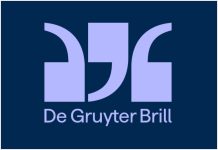
De Gruyter has taken the decision to digitize the entirety of its backlist all the way back to 1749. The decision to make this significant investment to complete the prestigious archive was taken earlier this year and the digitization process will begin shortly.
Many treasures are among works to be digitized, including Noam Chomsky’s “Syntactic Structures” as well as versions of “Grimm’s Fairy Tales” to name but two. The project is expected to conclude in 2020 with 3,000 additional titles to be available by the end of 2017. Of those titles digitized during the rest of this year, up to one hundred of the most important series will have priority, to allow librarians to complete their holdings.
De Gruyter has already made over 10,000 formerly out-of-print books available again in electronic format and as hardcover reprints through the on-demand “e-dition” project. In order to concentrate on the complete digitization, the e-dition project is being phased out. Titles that have already been made available as ebooks and PODs will remain available, but no further e-dition requests will be handled.
All titles that are digitized throughout the project will become available as soon as they have been scanned and produced. The final De Gruyter Book Archive will contain almost 40,000 titles and all will be available as ebooks and high-quality hardcover printed on-demand PODs. De Gruyter is therefore moving from an on-demand digitizing offer to immediate availability since there is worldwide demand for these collections.
De Gruyter’s desire to secure its backlist for generations to come stems from the publishing house’s long tradition as a family-owned company which not only has a commitment to the past, but also a keen interest in shaping the future.
“After intensive consultation with libraries and scholars around the world, we are convinced that the treasures in the De Gruyter archives will not only be of great value to researchers, but that they will also help to further a widespread desire to capture, make usable and disseminate human knowledge from the past. All of us at De Gruyter are looking forward to contributing to the success of the project,” said Dr. Anke Beck, Managing Director of De Gruyter.
























